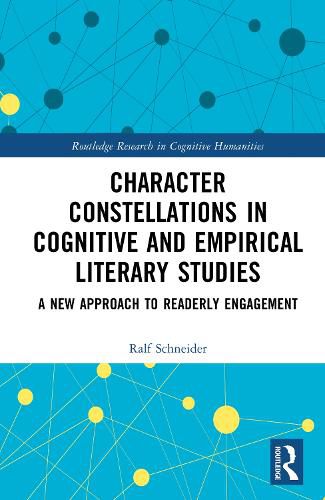Readings Newsletter
Become a Readings Member to make your shopping experience even easier.
Sign in or sign up for free!
You’re not far away from qualifying for FREE standard shipping within Australia
You’ve qualified for FREE standard shipping within Australia
The cart is loading…






This book develops a new approach to readerly engagement with constellations of characters in the novel. It argues that we have not understood well enough how readers respond to the simple fact that the majority of prose narratives feature many characters who are involved in complex relationships.
The author integrates concepts, insights, and results from the multi-disciplinary field of cognitive and empirical literary studies and reintroduces input from classical literary scholarship. The chapters of this book develop the notion of Multiple Character Scenarios as a new conceptualisation of readers' mental engagement with constellations of many characters in extended narratives, and they introduce further innovative concepts: a model of the interaction of different dimensions of cognition in literary reading, a differentiated approach to perspectivisation, and a fresh look at genre-related reading expectations. The book concludes with methodological considerations for the empirical study of engagement with character constellations.
Beside discussing theoretical and empirical work from cognitive and empirical literary studies, the argument is illustrated by references to a broad range of examples from the history of the (British) novel. The book will therefore be of interest to literary scholars, narratologists and everyone interested in narrative engagement from the multidisciplinary field of cognitive and empirical literary studies.
$9.00 standard shipping within Australia
FREE standard shipping within Australia for orders over $100.00
Express & International shipping calculated at checkout
This book develops a new approach to readerly engagement with constellations of characters in the novel. It argues that we have not understood well enough how readers respond to the simple fact that the majority of prose narratives feature many characters who are involved in complex relationships.
The author integrates concepts, insights, and results from the multi-disciplinary field of cognitive and empirical literary studies and reintroduces input from classical literary scholarship. The chapters of this book develop the notion of Multiple Character Scenarios as a new conceptualisation of readers' mental engagement with constellations of many characters in extended narratives, and they introduce further innovative concepts: a model of the interaction of different dimensions of cognition in literary reading, a differentiated approach to perspectivisation, and a fresh look at genre-related reading expectations. The book concludes with methodological considerations for the empirical study of engagement with character constellations.
Beside discussing theoretical and empirical work from cognitive and empirical literary studies, the argument is illustrated by references to a broad range of examples from the history of the (British) novel. The book will therefore be of interest to literary scholars, narratologists and everyone interested in narrative engagement from the multidisciplinary field of cognitive and empirical literary studies.